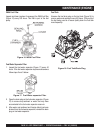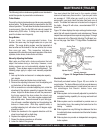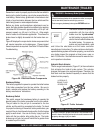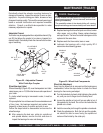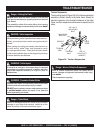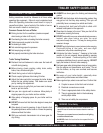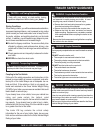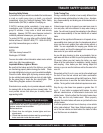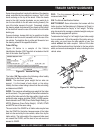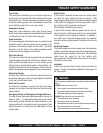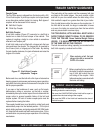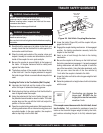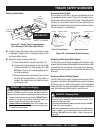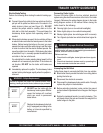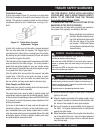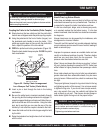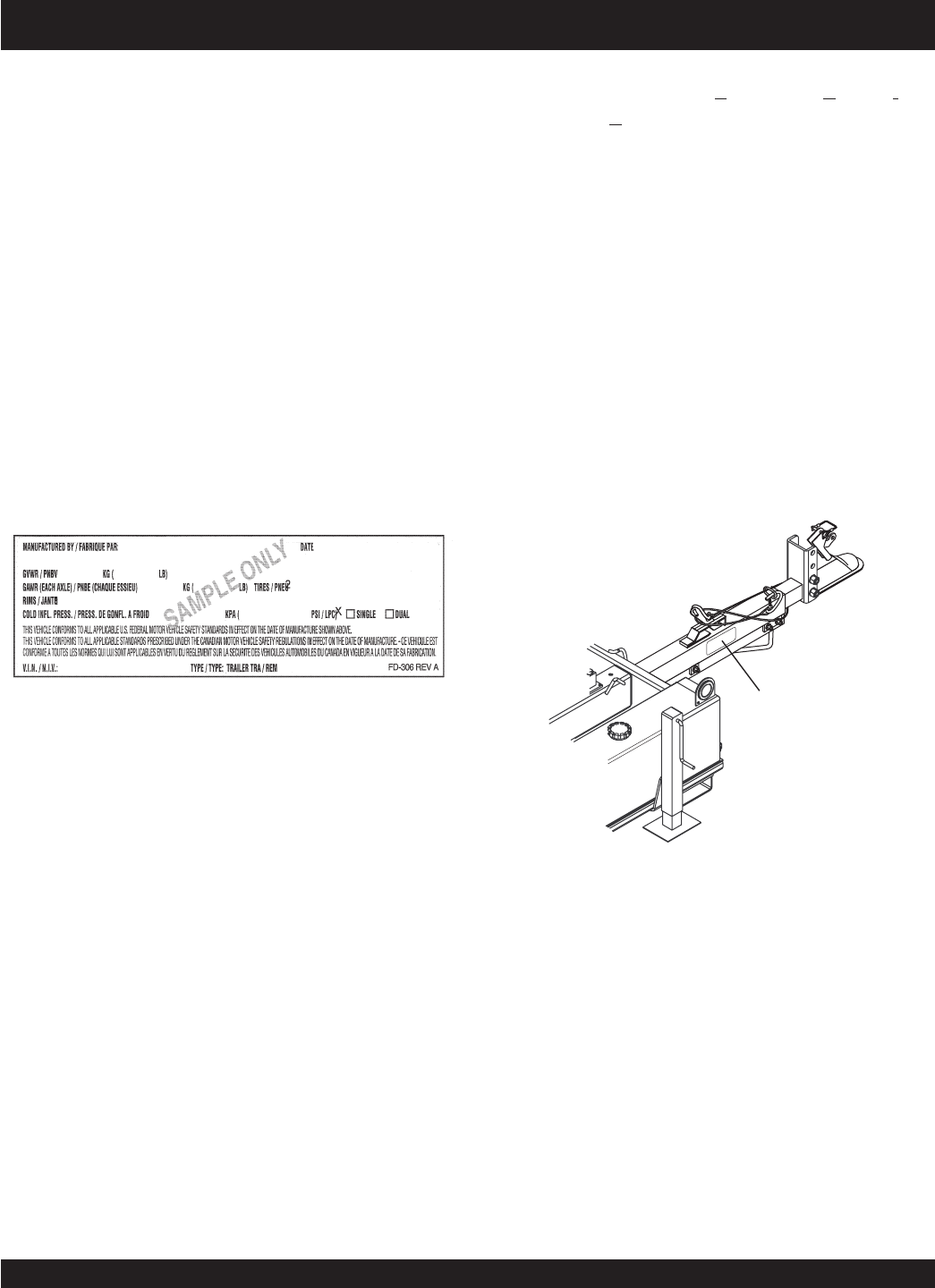
PAGE 38 —DRY PRIME PUMP — OPERATION MANUAL — REV. #3 (10/06/08)
SAFETY WARNING LABELS ON YOUR TRAILER
TRAILER SAFETY GUIDELINES
Some drivers place their hands at the bottom of the steering
wheel, and while the tow vehicle is in reverse, “think” of the
hands as being on the top of the wheel. When the hands
move to the right (counter-clockwise, as you would do to
turn the tow vehicle to the left when moving forward), the
rear of the trailer moves to the right. Conversely, rotating
the steering wheel clockwise with your hands at the bottom
of the wheel will move the rear of the trailer to the left while
backing up.
If you are towing a bumper hitch rig, be careful not to allow
the trailer to turn too much, because it will hit the rear of the
tow vehicle. To straighten the rig, either pull forward or turn
the steering wheel in the opposite direction.
Trailer VIN Tag
Figure 25 below is a sample of the Vehicle
Identification Number (VIN) Tag which is located on the left
front of the trailer. See Figure 26.
Figure 25. Vehicle VIN Tag
The trailer VIN Tag contains the following critical safety
information for the use of your trailer.
GAWR: The maximum gross weight that an axle can
support. It is the lowest of axle, wheel, or tire rating.
Usually, the tire or wheel rating is lower than the axle rating,
and determines GAWR.
GVWR: The maximum allowable gross weight of the trailer
and its contents. The gross weight of the trailer includes the
weight of the trailer and all of the items within it (such as the
pump with water, engine, and other ITEMS). GVWR is some-
times referred to as GTWR (Gross Trailer Weight Rating), or
MGTW (Maximum Gross Trailer Weight). GVWR, GTWR
and MGTW are all the same rating.
The sum total of the GAWR for all trailer axles may be less
than the GVWR for the trailer, because some of the trailer
load is to be carried by the tow vehicle, rather than by the
trailer axle(s). The total weight of the cargo and trailer must
not exceed the GVWR, and the load on an axle must not
exceed its GAWR.
PSIC: The tire pressure (Pounds per Square Inch)
measured when Cold.
VIN: The Vehicle Identification Number.
EMPTY WEIGHT: Some information that comes with the
trailer (such as the Manufacturer’s Statement of Origin) is
not a reliable source for “empty” or “net” weight. The ship-
ping documents list average or standard weights and your
trailer may be equipped with options.
To determine the “empty” or “net” weight of your trailer, weigh
it on an axle scale. To find the weight of the trailer using an
axle scale, you must know the axle weights of your tow
vehicle without the trailer coupled. Some of the trailer
weight will be transferred from the trailer to the tow vehicle
axles, and an axle scale weighs all axles, including the tow
vehicle axles.
Figure 26. VIN Tag Location
VIN TAG
V
IN
TA
G



